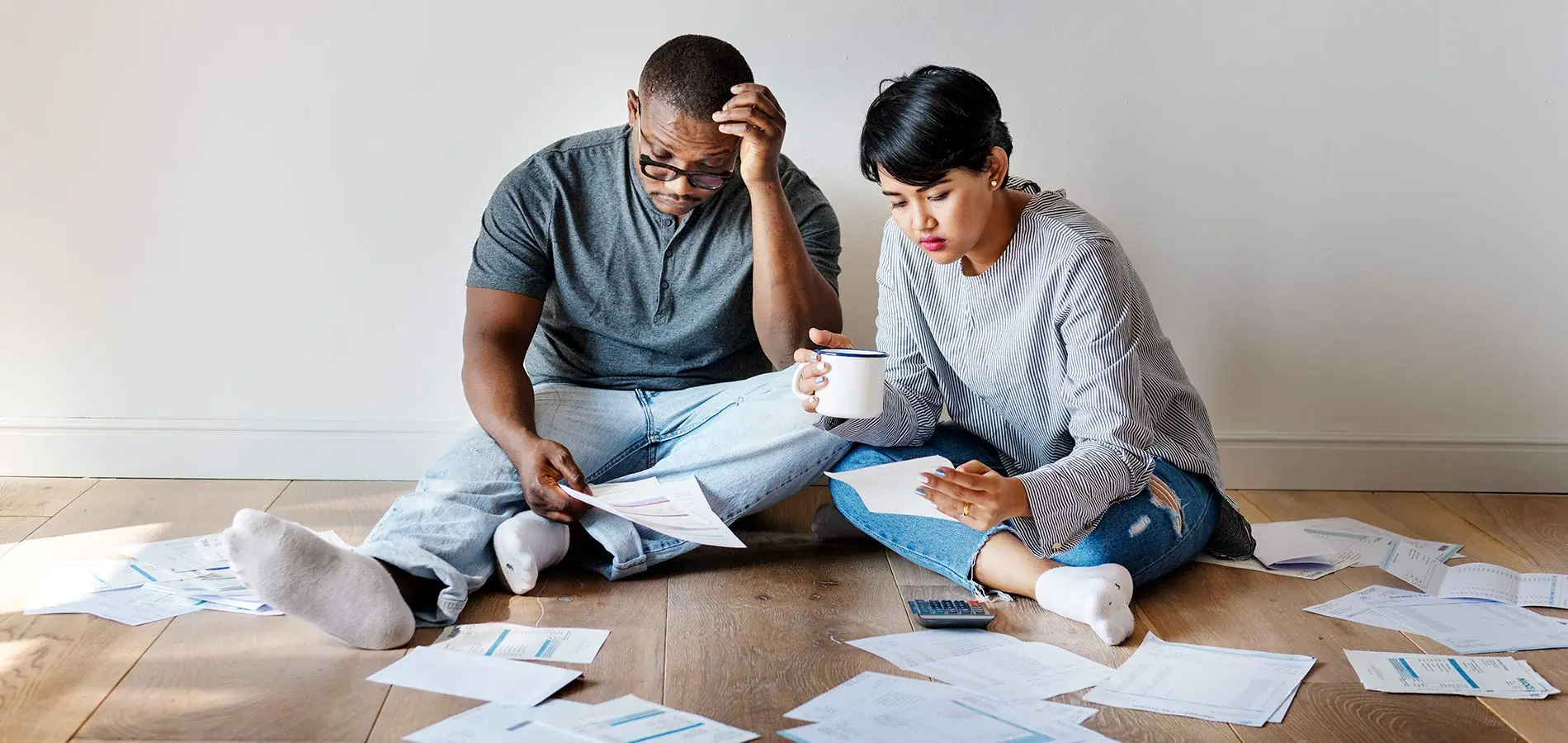
How To Consolidate Credit Card Debt With a Personal Loan
Are you facing mounting credit card debt? Maybe you had a pricy bill at the auto mechanic, an unexpected home repair, or medical costs that were charged to your credit card.
In these situations, it’s easy to pull out that plastic to cover the costs and delay the pain of paying up. Plus, when it comes to unexpected expenses, it’s often the only choice. Few of us have deep savings accounts that allow us to unexpectedly shell out a few thousand dollars.
Consolidating with a Personal Loan is a smart option if you have revolving credit card debt. Keep reading to learn what consolidation means and how it can help you pay off your credit card debt while saving money.
What’s wrong with revolving credit card debt?
First, let’s define “revolving credit card debt.”
When you use a credit card for a purchase, you receive a monthly bill or statement from the card issuer (for example, Visa® or your bank). This statement will indicate the full balance due, but it will also indicate a minimum payment amount. The minimum payment amount can fluctuate each month, as it is based on several factors, including transaction history, interest rate, and card balance.
Many people make only the minimum payments due on their credit cards each month. While this might seem like an affordable option, it’s also a way for the credit card company to make a lot of money. This is because your credit card provider charges you interest on any balance you carry from month to month.
According to Forbes Advisor, the national average Annual Percentage Rate (APR) on a credit card is just over 28%. Paying only the minimum monthly payment means you’ll pay a significant amount of money just for interest charges.
Here’s an example. Let’s say you had to charge a $6,000 medical bill and a $4,000 emergency home repair to a credit card with a 28% APR. If your minimum monthly payment were 3% of the balance, you would pay $300 a month.
$300 a month sounds pretty doable. However, it would take you over 30 years to pay off the balance, and that’s if you never missed a payment, charged nothing else to the card, and made only the minimum monthly payment. Plus, you’d pay over $31,000 just in interest!
If you have revolving credit card debt, use our Credit Card Minimum Payment Calculator to determine how long it may take to pay off your card balance and what you’ll pay in interest if you only make the minimum payment each month.
Why should you consolidate with a Personal Loan?
Still working with the previous example, you could continue to chip away at the balance by paying the minimum payment for decades.
Or, you could use a Personal Loan to consolidate the $10,000 credit card balance. Let’s say you get a loan from Connexus with an 11.49% APR and a 60-month term. You’d still have a monthly payment close to $220, but you’d pay off the loan in five years and pay only $3,192 in interest.
Using our example, you’d save over $27,000 in interest by consolidating!
Keep in mind that you do this all without increasing your debt load. You’d move the $10,000 debt from the high-interest credit card to the low-rate Personal Loan.
How do Personal Loans work?
Personal Loans provide you with a certain amount of money that you pay back in fixed monthly payments. The benefit of a fixed monthly payment is that it will never change, and you’ll know what to expect each month.
They are most commonly used to consolidate high-interest debt. However, they can also be used for home improvements, unexpected expenses, and other large expenditures like weddings or vacations.
There are some misconceptions that Personal Loans are similar to payday loans, but that is not the case. Payday loans are generally small amounts of money with a payback date of around 14 days. According to an article by the Federal Trade Commission, they often have an APR of around 400%, a staggeringly high number. Payday loans are best avoided at all costs.
If you’re worried about your credit making you ineligible for a Personal Loan, you can take steps to raise your credit score before applying. We also suggest that you give us a call and speak to a lender. We might have a loan option that works for you.
Get started on your debt consolidation plan
If you’re carrying revolving credit card debt, consider consolidating with a Personal Loan. As you learned in our earlier example, you’ll likely save yourself a significant amount of money. Plus, you’ll have the opportunity to get out of debt sooner—and that’s a priceless feeling.
Learn more about our Personal Loans today, or connect with a lender who can answer your questions and get you on the path to being debt-free.
This content is intended to provide general information and shouldn’t be considered legal, tax or financial advice. It’s always a good idea to consult a tax or financial advisor for specific information on how certain laws apply to your situation and about your individual financial situation.